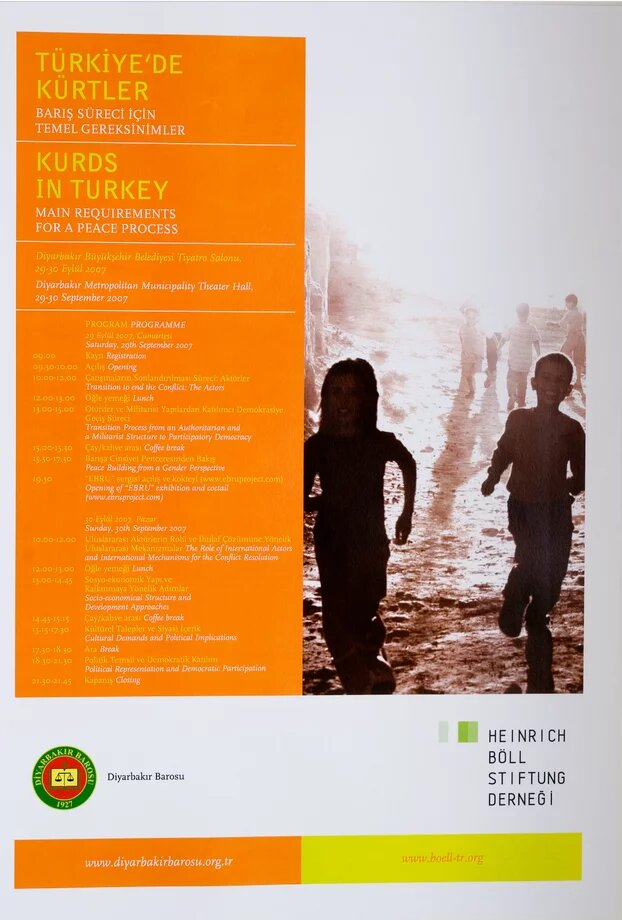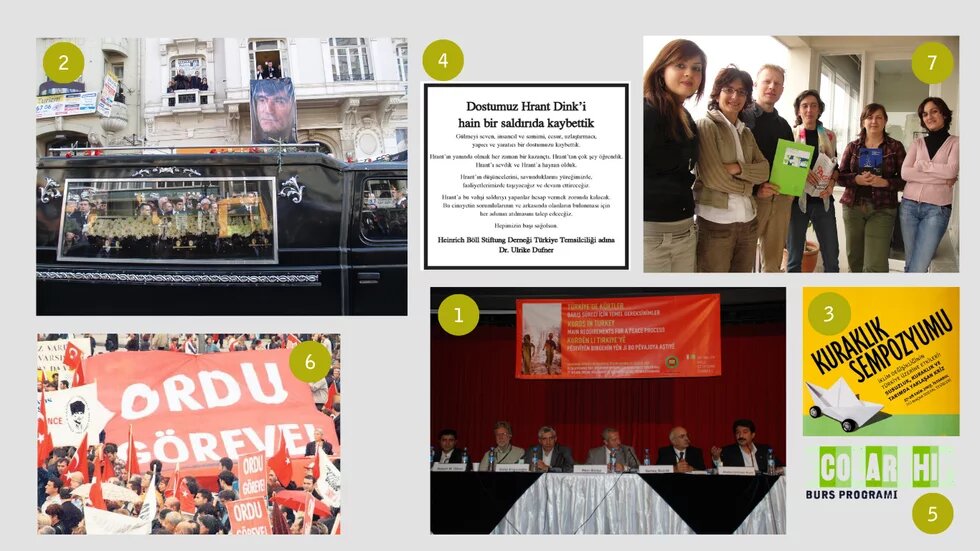
2007 marked another election year, and 20 Kurdish MPs were elected independently to parliament. Meanwhile, demonstrations erupted over concerns that the AK Party government might undermine the country's secularism principle.
The fears that a military e-memorandum, published on its website overnight, might again obstruct civilian politics turned out to be unfounded.
Yet, seven years after the attack on artist Ahmet Kaya on 20 February 1999—when he was assaulted on stage at an award ceremony for mentioning his intention to create and sing Kurdish songs—Turkey was preparing for another reckoning. This time, it was about acknowledging not only him but also the rights and existence of a people in his name.
The Heinrich Böll Stiftung Turkey, with its founding values rooted in peace studies and conflict resolution, partnered with the Diyarbakır Bar Association to organise a conference titled "Kurds in Turkey".
This marked another taboo being shattered by civil society efforts. The "Kurdish problem" was finally being openly acknowledged and discussed with a focus on solutions, not just security measures.
Prominent figures like Selahattin Demirtaş, Aysel Tuğluk, Sezgin Tanrıkulu, and many others spoke about the crucial initial steps needed to silence the weapons and the subsequent steps necessary to build a lasting peace rooted in human rights.
Although more progress seemed imminent and a formal peace process was on the horizon, a historic opportunity would tragically be squandered. The pursuit of peace would be left to the next generation.
1 – In that year’s elections, an electoral alliance between four left-wing political parties (Bin Umut Candidates), succeeded in electing 22 deputies to parliament. One of them, Selahattin Demirtaş, was a participant at the “Kurds in Turkey” conference in Diyarbakır. Despite ECtHR judgments, both Demirtaş and Osman Kavala, who also participated in that meeting, remain in prison. (hbs) 2 – Hrant Dink was assassinated on 19 January 2007, and those responsible for his murder remain unaccounted for. He was our friend. (hbs) 3 – Those were the years when Turkey began to face climate crisis-induced drought. One of the first comprehensive conferences on drought organized in Turkey took place during this period. The drought would lead to water shortages and some cases of dysentery in 2009. (hbs) 4 – Office Director Ulrike Dufner's message of condolence following Hrant Dink's assassination. (hbs) 5 – This logo is brand new, but Turkey’s first scholarship program in the field of ecology, Ecolarship, began in 2007. (hbs) 6 – Occational pro-coup messages at Republican rallies were a disappointment for those who advocated civilian politics in Turkey. The e-memorandum issued on the General Staff's website at midnight that same year and the closure case filed against the AKP the following year would also be added to this chain. (Kurdistan Post) 7 – Our team in those days: From left to right Aliye, Saynur, Ekrem, Ulrike, Aylin, Semahat. (hbs)
